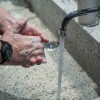
For veterans and their loved ones, knowing the benefits available for senior veterans can be a helpful way to obtain healthcare, housing, senior care, employment, and other necessities. The U.S. Department of Veteran Affairs (VA), which officially provides veteran benefits, reports that there were over 12.4 million veterans 65 or older in 2012. Many of them served in the Korean War, Vietnam War, World War II, or Persian Gulf War. read more

The novel (new) form of coronavirus known as COVID-19 has become an indefinite pandemic, with older adults and people with compromised immune systems being the most vulnerable. Some of the biggest and deadliest outbreaks in the United States have occurred in senior living facilities. read more

A transient ischemic attack (TIA) is also commonly known as a mini-stroke because it is a temporary experience of stroke-like symptoms. TIAs also share the same causes as strokes, namely a blockage of blood supply to the brain, and are often a sign that an actual stroke may occur. read more

Elderly pneumonia is a serious concern due to seniors' increased risks and the condition's high fatality rate among all age groups. This lung infection, caused by various bacteria, viruses, and fungi, was the eighth leading cause of death in the United States according to 2010 data from the National Center for Health Statistics. Additionally, the Center for Disease Control estimates that 1 in 20 adults who contract pneumonia die from it. read more

During snowy days, there are ways for the elderly to get help with new challenges that arise. Older people, especially those who are homebound or disabled, face significant health risks in the winter season. Depending on where you live, winter may be hazardous or no different from other seasons. read more







